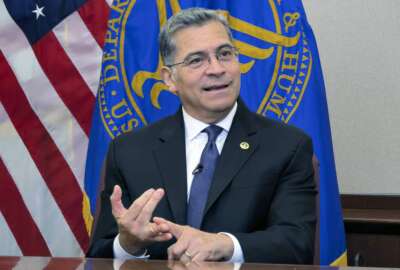Death by a thousand cuts or improving the civil service?
There are a lot of proposals floating around Washington that purport to be solely for cost savings or making government more efficient. Jeff Neal, a former chief...
Commentary by Jeff Neal
Founder of ChiefHRO.com
& Senior Vice President, ICF International
This column was originally published on Jeff Neal’s blog, ChiefHRO.com, and was republished here with permission from the author.

A lot of proposals floating around Washington, D.C. purport to be solely for cost savings or making government more efficient. Government Executive has a great article that summarizes many of the cuts proposed in both the House of Representatives and the Senate. Those cuts, along with changes to Senior Executive Service (and other employee) tenure, proposals to eliminate “official time” for union activities and other “reforms” can be viewed in a lot of ways.
Taken at face value, we can assume they are intended to reduce the cost of the federal workforce at a time when budgets are tight. The logic is simple: government is big and expensive, the economy is not firing on all cylinders and government needs to make itself less costly. Sounds simple and good for the country.
If there is anything I have learned in 25 years in this town, it is that we must always look beyond the title of a bill and the stated purpose to see what additional consequences (unintended or deliberate) might result if the bill becomes law. These civil service changes could have a lot of consequences, many of them very, very bad. Let’s look at a few of them and see where they might lead:
- Downsize the government through attrition with a 1-for-3 hiring freeze. This proposal would allow most agencies to hire one employee for every three that leave. Proposals similar to this have been around for years. They assume that either (a) the government is so inefficient that it can absorb a massive cut in staffing and still get its work done, (b) the government is doing too much and the cuts will force it to do less, or (c) the work can be shifted from the government to the private sector.
There are several problems with this approach. First, it allows cuts to be driven by who leaves rather than a plan. Second, if government is that inefficient, it will not magically become efficient when a lot of people are not replaced. It will just become even less effective. Third, if government is doing too much, Congress should take the lead and identify which programs it wants to cut rather than allowing turnover to drive it. The likely result of this type of cut is messy, with savings but no improvements. Fourth, if the work is going to be transferred to industry, we will see savings on the payroll line, but increases in the contract line. The result is no savings, just an illusion of a smaller government.
- Cut Federal retirement benefits by increasing employee contributions to retirement plans, going to a high-five rather than a high-three retirement formula and reducing the interest rate on the Thrift Savings Plan’s G Fund. This approach follows the private-sector trend of leaving retirement in the hands of employees and their 401(k)s, TSPs or similar retirement funds.
At some point in the next few years, we are likely to see the defined benefit portion of federal retirement phased out. The interim step of raising employee contributions is a first step, as is the change to a high-five formula. I believe the government should be a model employer and model employers do more for their employees, but the truth is I do not think it will make a big difference in the number of people who apply for federal jobs. Any kind of pension plan is increasingly rare, so what the government has in the Federal Employees Retirement System is far ahead of most employers.
The part that concerns me most is reducing the return on the G Fund. Although it does not have a high return, it is where many employees and retirees put their TSP money. About 43 percent of the $436 billion that federal employees have invested in the TSP is in the G Fund. Cutting the return is likely to have a detrimental effect on a great many employees and retirees. It will push more retirees to move their money out of the TSP and into Individual Retirement Accounts. It may also reduce the amount of money active employees contribute to the TSP. Both of those are bad. The Federal Retirement Thrift Investment Board opposes the proposal. If it is likely that the defined benefit plan in FERS will eventually be phased out, anything that hurts the TSP will have a big impact on employees and retirees.
- Reduce due process for federal employees. Proposals to make it easier to fire Senior Executive Service members are only the beginning. If they are successful, the next step will be to make it easier to fire any federal employee. Such proposals are popular. Many outside government believe federal employment is a lifetime arrangement. In February, the Government Accountability Office reported that only 3,500 out of 2 million federal employees were fired in 2013.
The Bureau of Labor Statistics reports that just over 3 percent of private sector employees are fired every year. The federal government should have an easier way of dealing with performance and misconduct, but making wholesale firings possible is not the answer. We have all seen how quickly people in power look for scapegoats when something goes wrong, rather than fix the underlying problems. We also have a long history in government that shows what happens when civil service protections do not exist. The spoils system that existed before the Pendleton Act did not serve the people well. Allowing managers to fire anyone they want with little recourse would cause the civil service to quickly revert to a spoils system. Given a choice of the extremes of few firings or a spoils system, I believe the current system is better for the American people. A simpler process for dealing with poor performance and misconduct, coupled with a more effective and efficient appeals process and better trained supervisors, would go a long way toward solving this problem without gutting the civil service.
- Cut the pay of every employee making $100,000 or more. This proposal is not being taken seriously by many people in Congress. The simple fact is that many federal jobs involve very complex work that demands salaries of $100,000 or more. Pushing thousands of the highest performers at middle and high grades out by cutting their pay would devastate many agencies.
- Eliminate “official time” for union representatives. The idea behind this one is that union representatives do union work on the taxpayer’s nickel. For the most part, that is a mischaracterization of what happens. Official time is for representational work, not for union business. Most collective bargaining agreements explicitly prohibit use of official time for internal union business. Much of what is allowed for union representatives is also allowed for personal representatives in EEO complaints and administrative grievance procedures. While there is some abuse of official time, for the most part, it serves an agency’s interests.
The types of activities performed on official time include (example from the contract between AFGE and the Defense Logistics Agency): (1) negotiations over the impact and/or implementation of changes in conditions of employment of bargaining unit employees, (2) participation in formal discussions, (3) investigation, preparation, filing and processing grievances in accordance with the Negotiated Grievance Procedure, (4) preparation for and attendance at management-initiated meetings, (5) participation on committees or panels, (6) preparation for and participation in proceedings before the Federal Labor Relations Authority (FLRA) and (7) assisting an employee, when designated as their representative, in preparing a response to a proposed disciplinary or adverse action.
The cost of official time is hard to pin down, but it is less than the cost of administrative leave identified by GAO. With federal employees’ morale falling every year, eliminating their ability to have a representative is not going to help and is likely to make morale even worse.
Federal employees have already contributed billions of dollars to deficit reduction through pay freezes and retirement cuts. If we really want to reduce the cost of government, we need a serious discussion about what government does and how it is organized. Reducing duplication of functions and missions, consolidating agencies and deciding what services government should no longer provide are far more effective long-term strategies than whacking the pay and benefits of federal workers. They are also much harder to accomplish and will score far fewer political points, making them much less likely to happen.
Jeff Neal is a senior vice president for ICF International and founder of the blog, ChiefHRO.com. Before coming to ICF, Neal was the chief human capital officer at the Department of Homeland Security and the chief human resources officer at the Defense Logistics Agency.
MORE COMMENTARY FROM JEFF NEAL:
If it works, kill it: How Bureaucracy stops progress
How many contractors does the government have?
DHS shutdown twofer: Burning money and morale at the same time
What does it mean when the government ‘closes’ due to weather?
Copyright © 2025 Federal News Network. All rights reserved. This website is not intended for users located within the European Economic Area.





